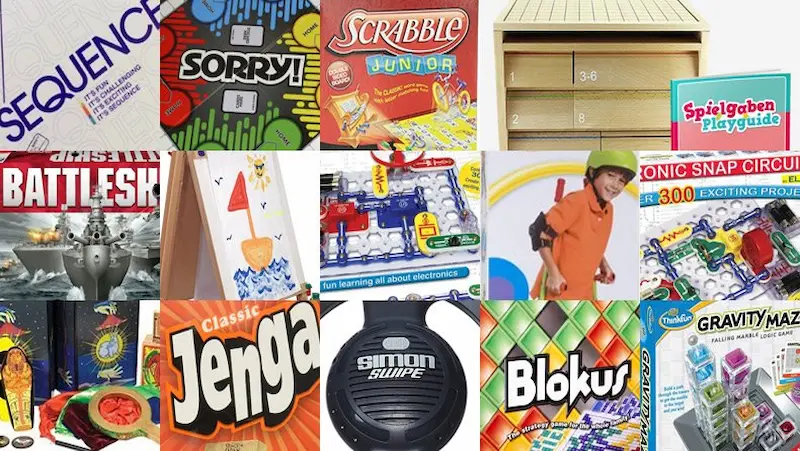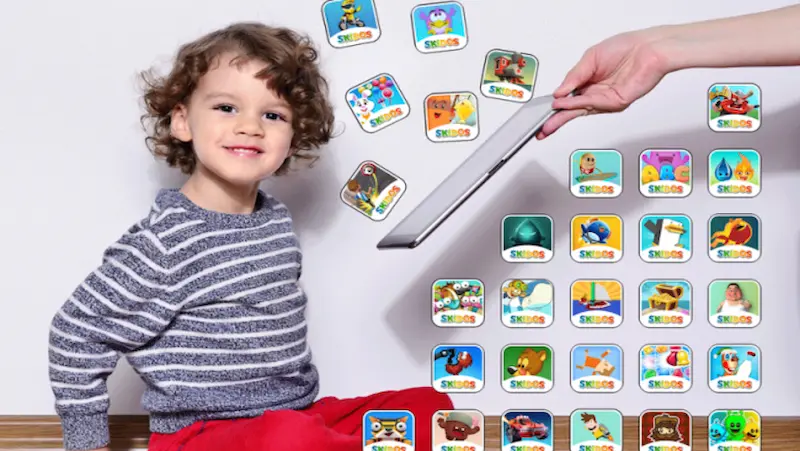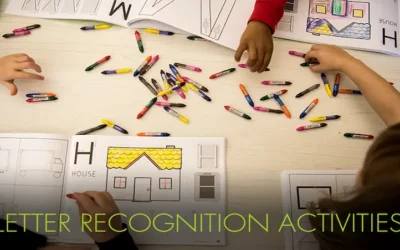“I am a treasure trove of fun and learning combined, where knowledge and play forever intertwine. I’m not a book, nor a toy with a name, but something in which you can learn and game.
What am I?”
In today’s digital age, Educational Games for kids have become a popular tool to enhance learning while keeping children engaged and entertained. These games offer a fun and interactive way for children to acquire knowledge, develop essential skills, and explore various subjects.
They can be played on computers, tablets, or smartphones, making them easily accessible to children of all ages. These games go beyond rote memorization and encourage critical thinking, problem-solving, and creativity.
They provide a safe and controlled environment where kids can learn at their own pace, building confidence and a love for learning. The integration of education and entertainment in these top educational games creates a powerful learning experience for kids.
By harnessing the power of technology, these games make learning enjoyable, motivating children to actively participate and gain knowledge in a way that feels like play.
Table of contents
Introduction
Educational games for kids play a crucial role in children’s learning and development. Here are some key reasons why they are important:
1. Engaging and Motivating: Educational games capture children’s attention and motivation by offering interactive and enjoyable experiences. This engagement helps sustain their interest in learning, making the educational process more effective.
2. Active Learning: Games promote active learning, encouraging children to participate actively rather than passively receiving information. They involve problem-solving, critical thinking, decision-making, and strategizing, allowing children to apply their knowledge and skills in a practical context.
3. Reinforcement of Concepts: Games provide a platform to reinforce and consolidate concepts learned in the classroom. By practicing skills in a game-based setting, children can enhance their understanding and retention of various subjects such as math, language, science, and more.
4. Individualized Learning: Educational games often adapt to individual learners, allowing children to progress at their own pace. This personalized approach ensures that each child receives appropriate challenges and support, catering to their unique learning needs and abilities.
5. Skill Development: Games foster the development of essential skills, including problem-solving, critical thinking, creativity, collaboration, and communication. They also promote cognitive skills such as memory, attention, and logical reasoning.
6. Confidence Building: When children experience success and progress within a game, it boosts their confidence and self-esteem. Fun & educational activities for kids games provide a safe and supportive environment for them to make mistakes, learn from them, and build resilience.
7. Multidisciplinary Learning: Many educational games integrate multiple subjects, offering interdisciplinary learning opportunities. This helps children understand the interconnectedness of different fields of knowledge and encourages a holistic approach to learning.
8. Real-World Application: Some educational games simulate real-world scenarios, allowing children to apply their knowledge in practical contexts. This bridges the gap between theory and practice, making learning more relevant and meaningful.
In all, educational games provide an effective and enjoyable avenue for children to learn, practice skills, and develop important attributes for their overall growth and development. By blending learning with entertainment, these games create a positive and impactful experience for learning games for kids of all ages.

With BrightChamps’ educational games for kids, children can apply their knowledge in real-world applications through code games for kids that spark creativity and problem-solving abilities. Join our platform to unlock a world of fun learning experiences and foster valuable skills for the future!
Benefits of Educational Games
Using educational games for kids offers several advantages that contribute to their cognitive development, problem-solving abilities, and overall engagement. Here are some key advantages:
1. Enhanced Cognitive Skills: Educational games stimulate various cognitive skills, including memory, attention, and logical reasoning. By actively participating in problem-solving activities, children improve their cognitive abilities, which can have a positive impact on their academic performance.
2. Improved Problem-Solving Abilities: Educational games often present challenges and puzzles that require critical thinking and problem-solving skills to overcome. By engaging in these activities, children learn to analyze problems, think creatively, and develop effective strategies to find solutions.
3. Increased Engagement and Motivation: Educational games are designed to be engaging and interactive, capturing children’s attention and motivating them to actively participate in the learning process. This high level of engagement enhances their focus, concentration, and overall interest in the subject matter.
4. Individualized Learning: Many educational games offer personalized learning experiences, adapting to each child’s skill level and progress. This individualization ensures that children are presented with appropriate challenges and opportunities for growth, promoting a sense of achievement and mastery.
5. Active Learning and Retention: Educational games encourage active learning, where children can apply knowledge and skills in practical contexts. This hands-on approach improves information retention as children experience concepts in action, making learning more meaningful and memorable.
6. Reinforcement of Learning Concepts: Educational games provide an opportunity for children to reinforce and apply concepts learned in the classroom. By practicing skills through gameplay, children solidify their understanding, which leads to better retention and mastery of the subject matter.
7. Collaborative and Social Skills: Many educational games offer multiplayer or collaborative features, fostering social interaction and teamwork. Through these games, children learn to communicate effectively, collaborate with others, and develop important social skills.
8. Immediate Feedback and Progress Tracking: Educational games often provide immediate feedback, allowing children to understand their mistakes and make corrections in real time. This feedback helps them identify areas for improvement, reinforcing the learning process. Additionally, progress-tracking features enable children to monitor their growth and celebrate their achievements.
In summary, educational games offer numerous advantages, including the development of cognitive skills, problem-solving abilities, and increased engagement. By leveraging the interactive and immersive nature of games, children can enjoy learning while acquiring knowledge and skills that are essential for their academic and personal growth.

Age-Appropriate Educational Games
Here are some recommendations and suggestions for educational games based on different age groups:
Preschool (Ages 3-5)
– ABC Adventures: An interactive game that introduces young children to letters, phonics, and basic vocabulary through engaging activities and colorful visuals.
– Math Safari: This game combines math learning with an adventure in the animal kingdom, helping preschoolers develop early numeracy skills in a fun and interactive way.
– Shapes and Colors Quest: A game that introduces preschoolers to shapes, colors, and basic spatial awareness through puzzles and exploration.
Elementary School (Ages 6-11)
– Math Mania Challenge: A game that presents math problems in the form of puzzles, quizzes, and mini-games, encouraging elementary school children to practice and improve their math skills.
– Word Wizard Adventures: This game helps children expand their vocabulary, spelling, and language skills through engaging word-based challenges and adventures.
– Science Sleuths: An interactive game that explores various scientific concepts and experiments, stimulating curiosity and critical thinking among elementary school children.
Middle School (Ages 12-14)
– History Quest: Time Travel Adventures: This game takes middle school students on a journey through different historical periods, immersing them in interactive quests, puzzles, and challenges that deepen their understanding of history.
– Math Masters Challenge: A game that provides middle schoolers with a range of math problems, from basic arithmetic to more complex algebraic equations, helping them strengthen their mathematical abilities.
– Geography Explorer: An educational game that teaches middle school students about world geography, countries, cultures, landmarks, and more through interactive maps, quizzes, and exploration.
High School (Ages 15-18)
– Science Lab Simulations: This game offers virtual lab experiences, allowing high school students to perform scientific experiments, learn about scientific principles, and enhance their understanding of various scientific disciplines.
– Literary Adventures: Classic Literature Game: An immersive game that explores classic literary works, engaging high school students in interactive storytelling, character analysis, and critical thinking.
– Coding Challenge: Mastering Programming: This game introduces high schoolers to coding and programming concepts, providing challenges and puzzles that enhance their computational thinking and problem-solving skills.
Remember, these recommendations are just a starting point, and there are numerous educational games available for each age group. It’s important to consider individual interests, learning styles, and skill levels when choosing educational games for children.

Subject-Specific Educational Games
Educational games that focus on specific subjects like math, science, language, and more are a valuable resource for targeted learning. Here are some examples of such games:
Math
1. Math Blaster: This game combines math practice with arcade-style gameplay, offering challenges and exercises that cover various math topics, including addition, subtraction, multiplication, and division.
2. Prodigy Math Game: A role-playing game that integrates math practice into an immersive adventure, where students solve math problems to progress and engage in battles with virtual creatures.
3. Mathletics: An online platform that offers interactive math activities, quizzes, and competitions, covering a wide range of math concepts from basic arithmetic to advanced algebra and geometry.
Science
1. Minecraft: Education Edition: It combines the popular game Minecraft with educational content, allowing students to explore and learn about scientific concepts, ecosystems, geology, and more within the game’s virtual world.
2. The Magic School Bus: Oceans: Based on the popular educational TV show, this game takes children on an underwater adventure to discover marine life, oceanography, and environmental concepts through interactive exploration and mini-games.
3. Satisfactory: This game challenges players to build and manage automated factories while applying scientific principles such as resource management, engineering, and problem-solving.
Language and Literacy
1. Reader Rabbit: This game series focuses on reading and language development, with activities that cover phonics, vocabulary, comprehension, and grammar in a fun and interactive way.
2. Duolingo: An app-based language learning platform that offers interactive lessons and games for various languages, helping students develop reading, writing, listening, and speaking skills.
3. Word Munchers: A classic game that improves vocabulary and spelling skills, where players navigate through a maze and “eat” words that match a given description or category.
History and Social Studies
1. Civics: Democracy Road: This game introduces students to the principles of democracy, citizenship, and government through interactive decision-making scenarios and simulations.
2. Oregon Trail: A historical game where players experience the challenges and adventures of a pioneer traveling westward in the 19th century, learning about American history and geography along the way.
3. Assassin’s Creed: Origins: This game takes players back to ancient Egypt, offering an immersive experience where they can explore historical settings, characters, and events while learning about ancient civilizations.
These examples illustrate how educational games can be designed to focus on specific subjects, providing an interactive and engaging learning experience that complements traditional classroom instruction. They offer a dynamic and hands-on approach to learning, fostering subject-specific knowledge, skills, and a deeper understanding of the respective subject matter.

Offline vs. Online Educational Games
Offline and online educational games have their own set of benefits and limitations. Let’s compare and contrast them:
Offline Educational Games
Benefits
1. Tangible Interaction: Offline games often involve physical components, such as cards, blocks, or puzzles, allowing children to engage in hands-on learning experiences and develop fine motor skills.
2. Social Interaction: Offline games encourage face-to-face interaction among players, promoting communication, collaboration, and social skills development.
3. Portability: Offline games can be easily carried and played anywhere, without the need for internet connectivity or electronic devices.
4. Screen Time Management: Offline games provide an opportunity for children to engage in educational activities without relying on screens, promoting a balanced approach to learning and leisure time.
Limitations
1. Limited Content and Flexibility: Offline games may have a limited range of content compared to online games, as they are restricted by physical components. They may not offer the same level of customization or adaptability to individual learning needs.
2. Feedback and Progress Tracking: Offline games may not provide immediate feedback or progress tracking features found in online games, making it harder for parents and educators to monitor a child’s performance and growth.
3. Updates and Expansion: Offline games require physical updates or expansions to introduce new content or adapt to changing educational needs, which can be less convenient compared to online games that can be updated remotely.

Online Educational Games
Benefits
1. Vast Content and Variety: Online games have access to a wide range of content, covering various subjects, levels, and learning styles. They offer diverse gameplay styles, catering to different preferences and abilities.
2. Adaptive and Personalized Learning: Online games can adapt to individual learners, offering customized experiences and tailored challenges based on a child’s progress and skill level.
3. Real-Time Feedback and Progress Tracking: Online games provide immediate feedback on performance, helping children identify areas of improvement. They often have progress-tracking features that allow parents and educators to monitor a child’s growth and provide targeted support.
4. Accessibility and Convenience: Online games can be accessed on various devices with an internet connection, making them widely available and convenient for home or classroom use.
Limitations
1. Screen Time and Distractions: Online games can increase screen time for children, which should be managed to ensure a healthy balance between online and offline activities. They may also come with potential distractions or ads that can divert a child’s focus.
2. Dependence on Technology: Online games require electronic devices and internet connectivity, which may not always be accessible or reliable for all children, especially in underserved areas.
3. Privacy and Safety Concerns: Online games involve data sharing and online interactions, raising concerns about privacy and online safety. Parents and educators need to ensure that children are using reputable platforms and have appropriate supervision.
In conclusion, both offline and online educational games offer unique benefits and limitations. The choice between them depends on factors such as the child’s learning needs, available resources, and preferences. A balanced approach that incorporates a mix of offline and online educational games can provide a comprehensive and engaging learning experience for children.

Are you aware BrightChamps has an extraordinary coding program called CodeChamps & RoboCHAMPS that ignites young minds with the power of coding through an engaging curriculum?
It is a creative wonderland where kids dive into the captivating world of programming, learning to unravel complex algorithms and craft their own digital masterpieces.
Free Educational Games
Here’s a list of high-quality, free educational games that parents can access without any to no cost:
1. Prodigy Math: An engaging math game that covers various math topics for grades 1-8, offering personalized math practice and interactive gameplay.
2. Duolingo: A popular language learning platform that provides interactive lessons and games for learning a wide range of languages.
3. PBS Kids Games: A collection of educational games based on popular children’s TV shows, covering various subjects like math, science, reading, and more.
4. Funbrain: An educational website with a variety of games that teach math, reading, problem-solving, and critical thinking skills.
5. National Geographic Kids: Provides a selection of free online games that explore nature, animals, geography, and science topics for children.
6. Code.org: Offers a range of coding and programming games and tutorials for children of all ages, promoting computational thinking and problem-solving skills.
7. Khan Academy Kids: A comprehensive educational platform with interactive games, videos, and activities that cover math, reading, language arts, and more for young learners.
8. Seussville: A collection of games based on Dr. Seuss books, promoting literacy skills, rhyming, and word recognition for young children.
9. NASA Kids’ Club: Provides games and activities that introduce children to space exploration, astronomy, and scientific concepts.
10. Scratch: An online platform where children can create and share their own interactive stories, games, and animations while learning coding concepts.
Remember to review and ensure that the games are appropriate for your child’s age and educational needs. Additionally, while these games are free, some may offer optional premium features or upgrades for additional content.

BrightChamps offers free computer games for kids that cater to their educational needs, providing a fun and interactive platform for learning and growth. Join us to access a wide range of educational games that make learning an enjoyable adventure. Visit computer games for kids free.
How to Choose the Right Educational Games
When selecting educational games for your child, it’s important to consider their interests, age, and learning goals. Here are some tips and guidance to help you choose suitable educational games:
1. Consider Interests: Take into account your child’s interests and hobbies. Look for games that align with their passions, such as science, history, animals, or art. When children are engaged with topics they enjoy, they are more likely to be motivated and actively participate in learning.
2. Age Appropriateness: Consider the age range for which the game is designed. Look for games that match your child’s developmental stage and academic level. Age-appropriate games ensure that the content, gameplay, and challenges are suitable for your child’s abilities and provide an optimal learning experience.
3. Learning Goals: Identify specific learning goals you have for your child. Determine which skills or subjects you want them to focus on, such as math, language, problem-solving, or creativity. Look for games that align with these goals and provide opportunities for targeted learning and skill development.
4. Read Reviews and Recommendations: Before selecting a game, read reviews and recommendations from trusted sources. Look for feedback on the educational value, engagement, and suitability for different age groups. Reviews can provide insights into the game’s effectiveness and its alignment with your child’s needs.
5. Trial or Demo Versions: Many educational games offer trial or demo versions. Take advantage of these options to explore the game’s content, gameplay mechanics, and suitability for your child before making a commitment. Trying out a game beforehand can help you assess if it meets your expectations and aligns with your child’s preferences.
6. Check for Educational Content: Ensure that the game offers substantial educational content rather than just being entertaining. Look for games that have clear learning objectives, structured lessons, and activities that promote skill development and knowledge acquisition.
7. Balance Fun and Learning: Seek games that strike a balance between fun and learning. Games that are engaging and enjoyable hold children’s attention, making the learning experience more effective. Look for games that incorporate gamification elements, interactive challenges, and rewards to keep your child motivated and excited to learn.
8. Consider Multiplayer or Social Features: Some games offer multiplayer or social features that allow children to interact with others. Assess whether these features align with your child’s socialization and collaborative learning needs.
9. Parental Controls and Safety: Check if the game has appropriate parental controls and safety measures. Ensure that the game provides a safe online environment and protects your child’s privacy.
10. Observe and Engage: Once your child starts playing an educational game, observe their engagement, learning progress, and interest level. Engage in discussions with them about their experiences and encourage them to reflect on what they have learned.
Remember, every child is unique, and their learning preferences may vary. Stay involved in their gaming experiences, provide guidance and support, and regularly assess their progress to ensure that the chosen educational games are beneficial for their learning and development.

Conclusion
In conclusion, educational games provide a valuable and engaging avenue for children’s learning and development. By combining the elements of fun and interactive gameplay with educational content, these games offer numerous benefits.
They improve cognitive skills, problem-solving abilities, and critical thinking. Additionally, educational games cater to different subjects like math, science, language, and history, allowing children to explore and deepen their knowledge in specific areas. Whether offline or online, these games provide opportunities for personalized learning, adaptability, and progress tracking.
When selecting educational games for your child, it’s crucial to consider their interests, age appropriateness, and learning goals. By aligning the games with their preferences and educational needs, you can enhance their motivation and engagement. Reading reviews, trying out demo versions, and considering the balance between fun and learning are key aspects of making informed choices. Learn programming for kids.
By incorporating suitable educational games into their routine, parents can create an enriching learning environment that fosters curiosity, creativity, and a love for learning in their children. To get your hands on more such educational and free resources on coding for kids, robotics courses for kids, game development, etc., do check out the Brightchamps Page now!
Frequently Asked Questions
Educational games for kids are interactive digital or physical activities designed to promote learning and skill development in various subjects, combining educational content with engaging gameplay.
Educational games can benefit your child’s learning by improving cognitive skills, promoting problem-solving abilities, enhancing engagement, fostering subject knowledge, and providing interactive and personalized learning experiences.
Yes, there are educational games available for different age groups. From preschool to high school, educational games cater to specific age ranges, offering age-appropriate content and activities to support learning at each stage.
Yes, educational games can be played offline. There are many offline educational games available in physical formats such as board games, card games, and puzzles that promote learning and skill development.
Yes, there are many free educational games available. Numerous websites, platforms, and apps offer a wide range of high-quality, free educational games for children to access and enjoy without any cost.
To choose the right educational games for your child, consider their interests, age appropriateness, and learning goals, read reviews, try demo versions, and ensure a balance between fun and educational content.
Yes, educational games are designed for specific subjects. There are educational games that focus on subjects like math, science, language, history, coding, and more, providing targeted learning experiences in those areas.


 We are an army of educators and passionate learners from BrightChamps family, committed to providing free learning resources to kids, parents & students.
We are an army of educators and passionate learners from BrightChamps family, committed to providing free learning resources to kids, parents & students.
























